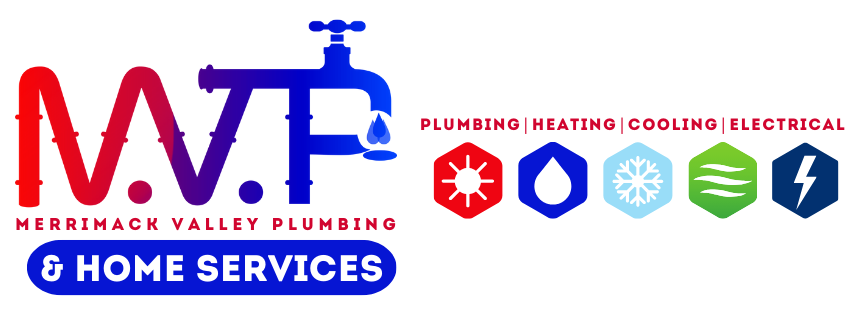Recognizing the Need for a Water Filtration System
Clean, safe water is a fundamental necessity for every household. Yet, many homes are unknowingly consuming water that falls short of optimal quality. Identifying the signs that a water filtration system is needed can safeguard health and enhance overall well-being.
This blog explores key indicators suggesting it's time to consider installing a water filtration system.
Unpleasant Taste and Odor
Water should be refreshing and tasteless. An unusual taste or odor often signals contaminants. Chlorine, used in water treatment, can leave a chemical taste. Organic material, bacteria, or heavy metals can contribute to a musty or metallic flavor. If water smells like rotten eggs, hydrogen sulfide may be the culprit. Addressing these issues typically requires a comprehensive filtration system.
Visible Particles and Sediment
If water contains visible particles or sediment, a filtration system can effectively remove these impurities. Visible particles include sand, dirt, rust, or debris from pipes and plumbing fixtures. Sediment can occur naturally in groundwater sources or may result from maintenance issues in the municipal water supply. While not always harmful to health, these contaminants can be unpleasant to encounter while drinking or cooking.
Cloudy Appearance
Cloudiness in water is another indicator that a filtration system is needed. This could be caused by suspended particles or air bubbles but may also suggest the presence of bacteria or other microorganisms. A quality filtration system can remove these impurities and provide clear, clean water for consumption.
Staining and Discoloration
Persistent stains on sinks, tubs, and laundry hint at water quality problems. Iron and manganese can cause reddish-brown or black stains, while copper may leave blue-green marks. Hard water, laden with calcium and magnesium, can lead to white, crusty deposits. These minerals are not harmful in small amounts but can damage plumbing and appliances over time.
Skin and Hair Issues
Water quality directly impacts skin and hair health. Hard water can leave a residue, making soap less effective and leading to dry, itchy skin and lifeless hair. Chlorine and other chemicals can exacerbate skin conditions like eczema. A water filtration system can significantly improve personal care outcomes, leaving skin and hair feeling softer and healthier.
Frequent Plumbing Problems
Mineral buildup from hard water can clog pipes and reduce appliance efficiency. Over time, this can cause frequent plumbing issues and increase maintenance costs. Signs like reduced water pressure or the need for regular pipe cleaning are clues that a filtration system might be beneficial.
High Levels of Contaminants
Regular water testing is essential for maintaining water quality. Homeowners should be aware of contaminants like lead, arsenic, and nitrates, which can pose serious health risks. Even if water is municipally treated, aging infrastructure can introduce pollutants. A filtration system provides an additional layer of protection, ensuring contaminants are effectively removed.
Health Concerns
Unexplained gastrointestinal issues, fatigue, or other health concerns may be linked to water quality. Contaminated water can harbor bacteria, viruses, and parasites. Long-term exposure to certain chemicals can also contribute to chronic conditions. Ensuring safe drinking water through filtration is a proactive step towards protecting health.
Environmental and Seasonal Factors
Environmental changes and seasonal variations can impact water quality. Heavy rainfall, flooding, or nearby construction can introduce contaminants into the water supply. Agricultural runoff, particularly in rural areas, can lead to increased pesticide and fertilizer levels. A robust filtration system can adapt to these fluctuations, maintaining consistent water quality.
Investing in a Water Filtration System
Recognizing the signs of compromised water quality is crucial. Investing in a water filtration system offers numerous benefits, from improved taste and odor to enhanced health and appliance longevity.
Different filtration systems cater to various needs:
- Activated Carbon Filters: Remove chlorine and volatile organic compounds (VOCs), and improve taste and odor
- Reverse Osmosis Systems: Provide comprehensive filtration, removing a wide range of contaminants, including heavy metals and dissolved solids
- UV Purifiers: Utilize ultraviolet light to kill bacteria and viruses, offering an additional layer of protection
- Water Softeners: Specifically address hard water issues by removing calcium and magnesium ions
Choosing the Right Filtration System
Selecting the appropriate system depends on specific water quality issues and household needs. Conducting a professional water test can identify contaminants and guide the choice of filtration technology. Consulting with water treatment specialists ensures the selected system addresses all concerns effectively.
Maintenance and Upkeep
Regular maintenance is key to the long-term efficacy of any filtration system. Replacing filters, sanitizing components, and monitoring system performance ensure consistent water quality. Many modern systems come with indicators or apps that alert homeowners when maintenance is required, simplifying the process.
Water is integral to daily life, impacting everything from hydration to household chores. Recognizing the signs that indicate the need for a water filtration system is the first step toward ensuring clean, safe, and pleasant water for all uses. Investing in a filtration system not only enhances health and well-being but also protects plumbing and reduces maintenance costs.
To learn more about water filtration systems and their benefits, contact us today. Understanding water quality challenges and addressing them proactively creates a healthier, more comfortable living environment.






